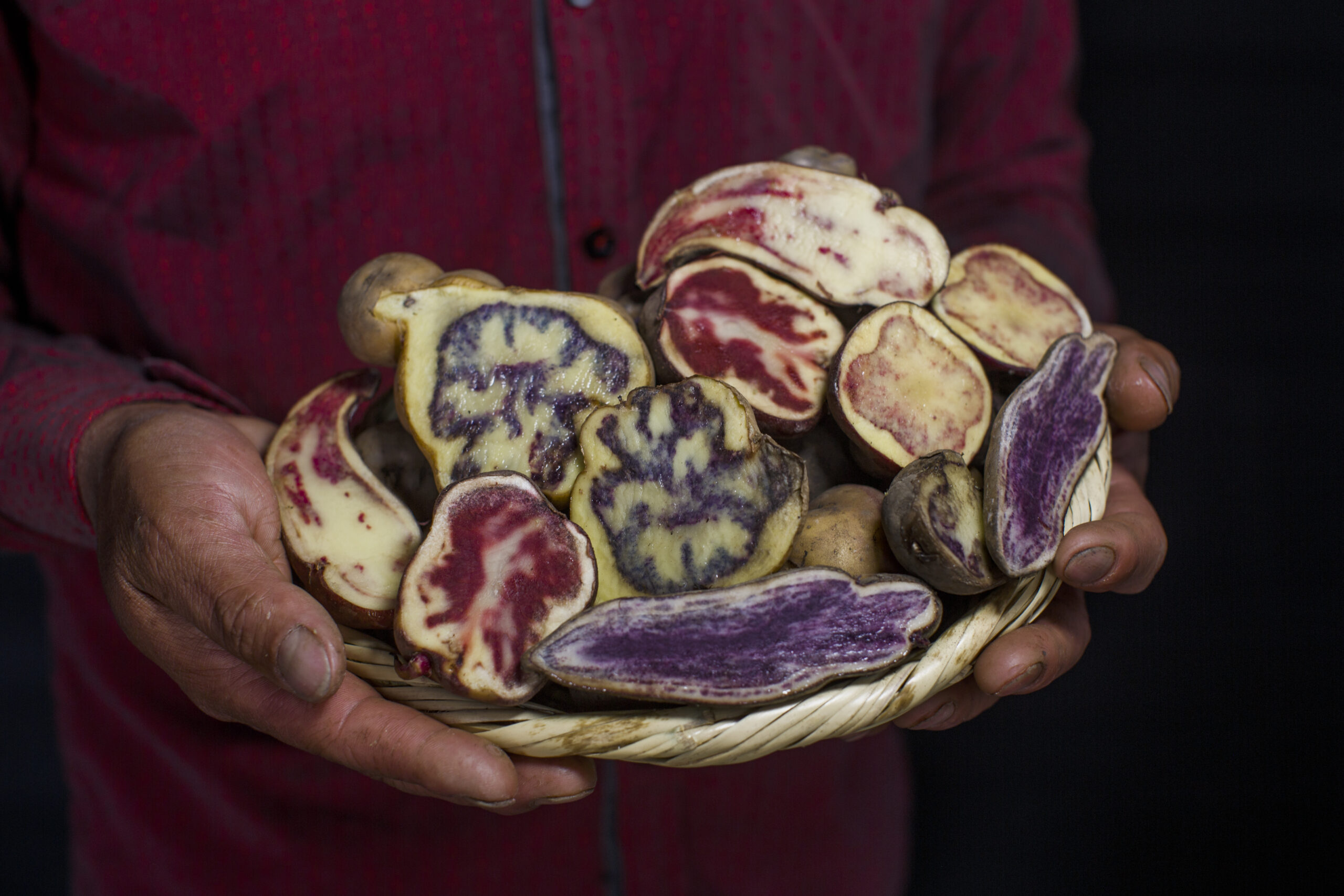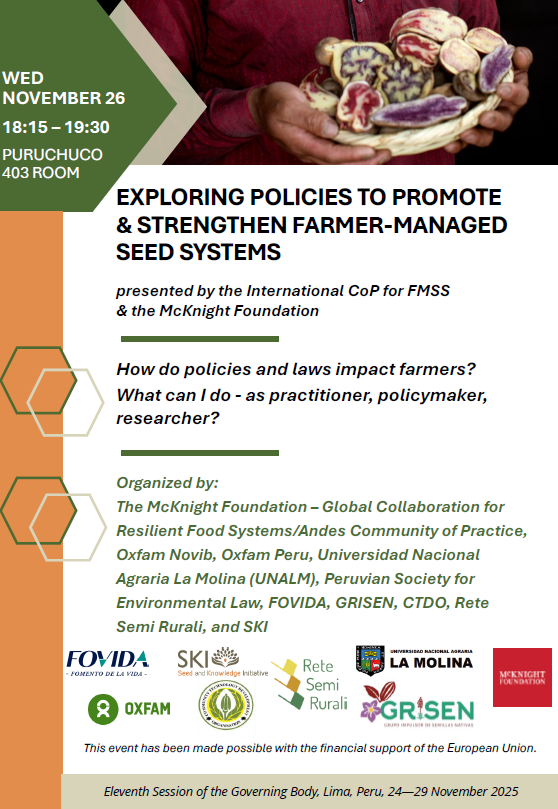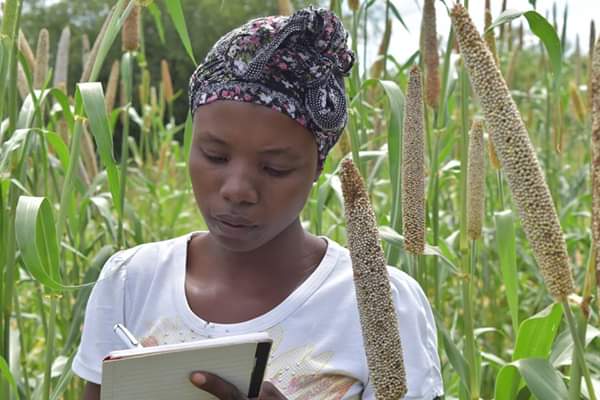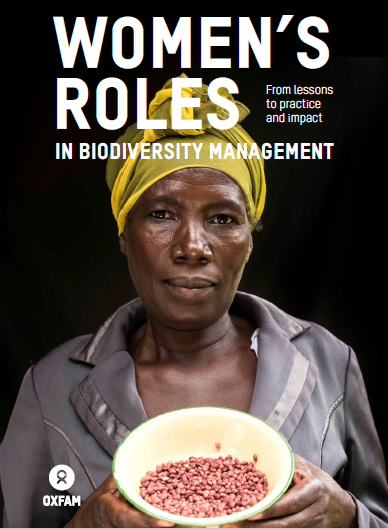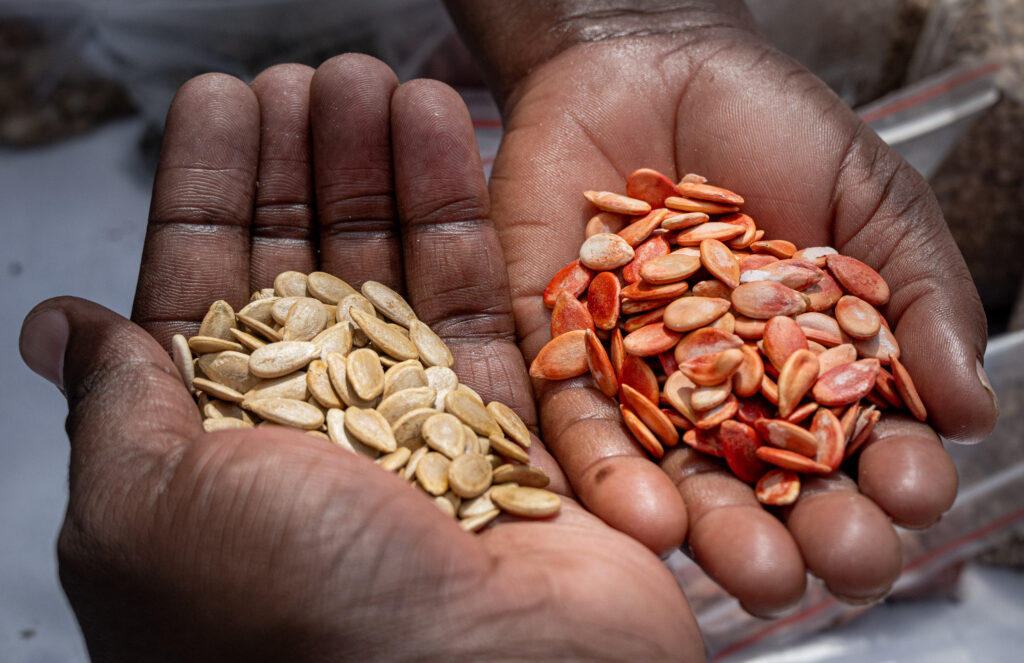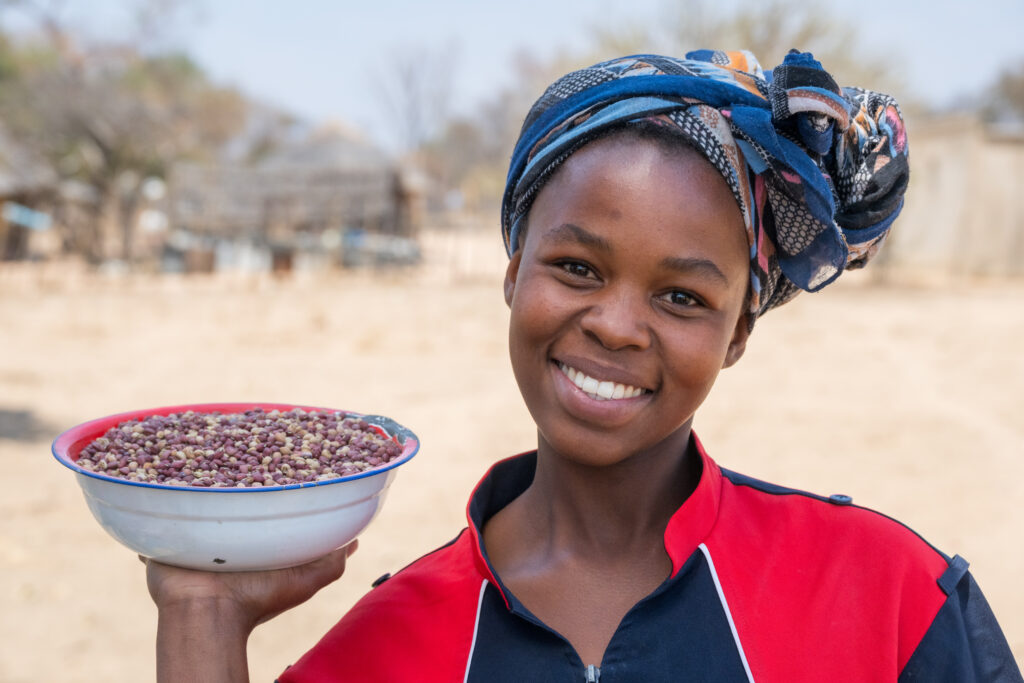by Maya Piotrowska and Nout van der Vaart, Oxfam Novib
Plant Genetic Resources for Food and Agriculture (PGRFA) are the foundation of food production and food security. While farmers have played a key role in conserving and enhancing PRGFA to the benefit of their communities for over thousands of years, professional plant breeding companies have more recently stepped in to engage in improving and commercializing PGRFA for their availability in food production. The Multilateral System (MLS) for Access and Benefit Sharing (ABS) under the FAO International Treaty for Plant Genetic Resources for Food and Agriculture (ITPGRFA) aims to provide a structure for all stakeholders to access PRGFA and to equitably share the benefits of its (commercial) use.
Acknowledging i) the need of all farmers and breeders to access PGFRA to regularly produce new and adapt existing varieties that can withstand changing climatic and other circumstances; ii) the contributions made by farmers over millennia in laying the foundation for the base of currently existing PRGFA, and iii) the need to fund and compensate farmers’ conservation and breeding efforts; Oxfam supports the objective of enhancing the functioning of the MLS and ABS system. After negotiations on enhancing the MLS started in 2013, efforts were stalled in 2019 before being picked up again in 2022, providing the Governing Body with a unique opportunity to finally come to an agreement to make the MLS work. The Ad Hoc Open-Ended Working Group to Enhance the Functioning of the Multilateral System (OEWG) finalized its report and its draft package of measures to enhance the MLS in July 2025, which is now to be discussed by the GB during its 11th meeting, taking place in Lima, Peru from 24-29 November 2025.
For Oxfam, the following principles and considerations are leading in defining our position on the reform of the Multilateral System:
- We believe international cooperation is the key to sustainable and equitable development for all nations and peoples worldwide.
- Therefore, we support the process of enhancement of the MLS and aim to contribute to this wherever we can.
- We acknowledge legitimate interests of both farmers and breeders in enhanced access to and use of PGRFA.
- We acknowledge the sovereign right of states to dispose of and manage their natural resources, as well as the need of Indigenous Peoples and local communities to get wider recognition and support for their historical role in the conservation and sustainable use of PRGFA.
- We acknowledge the interests of developing countries to dispose of and provide wider access to their natural resources/PGFRA on terms that will benefit their national development process.
- We acknowledge and support the need to promote and legally support Farmers’ Rights to i) save, use, exchange and sell farm-saved seeds; ii) participate in decision-making regarding plant genetic resources; and iii) have traditional knowledge protected.
- We acknowledge the need of breeders to get a return on investments made for developing new/improved varieties and support the development and implementation on a national level of sui generis plant variety protection systems that stipulate plant breeders’ rights, as long as farmers’ rights are not compromised.
- We support the fair and equitable sharing of benefits of the (commercial) use of PGRFA, and advocate for a better functioning ABS system. A better functioning ABS system would secure a higher (mandatory) contribution from seed companies for using materials from the MLS, which would increase absolute and relative shares of user-based income to the Benefit Sharing Fund.
Based on these principles and considerations, Oxfam recommends the Governing Body of the International Treaty for Plant Genetic Resources for Food and Agriculture to look for ways to increase and improve stakeholders’ access to and sustainable use of PGFRA, including crops currently not included in Annex 1, and to ensure user-based income to the Benefit-sharing Fund will increase in a sustainable, predictable and long-term manner, supporting local communities and Indigenous Peoples in developing countries specifically.
To come to a more equitable global seed system, it is of key importance that the user-based income to the Benefit Sharing Fund by actors accessing the Multilateral System for Access and benefit Sharing, increases significantly. Since its inception in 2009, user-based income to the BSF has not exceeded 1 million USD, whereas the estimated value of the global market whose value is expected to reach USD 100 billion per year in 2030. It’s high time that companies which financially benefit from the commercialization of PGRFA start making fair contributions to the Fund, which acknowledges the key role of, and supports local and Indigenous communities and smallholder farmers in LMICs in conserving and managing PGRFA and agrobiodiversity at large.
Oxfam therefore supports the proposed amendment of the Standard Material Transfer Agreement (SMTA) and expansion of Annex 1. Specifically, we call for a financial full subscription option that does not include any discounted rates; in which users (with more than USD 10 million yearly sales) would pay 0,1% of annual turnover (as also already established by the CBD for benefit-sharing payment on DSI). Envisioned benefit-sharing payments under the full subscription option would also include monetary benefit-sharing from the use of DSI on PGRFA.
What actions are we taking?
Oxfam side event on policies for Farmer Managed Seed Systems (FMSS)
In parallel to GB11, Oxfam Novib and Oxfam Peru, together with the McKnight Foundation, CTDT, Rete Semi Rurali and other partners, are organizing a side event on policies for Farmer Managed Seed Systems. Oxfam has been coordinating the international Community of Practice (CoP) on Farmer Managed Seed Systems since its inception in Harare in November 2024. The CoP and its key members are hosting a side event, together with the McKnight Foundation in Lima to discuss in more detail FMSS best practices and experiences and explore policies to support and enable FMSS.
Download the invite and more detailed side event description, you can also find it below this blog. Here’s a link to the Treaty website overview of all side events during GB11.
Oxfam requesting FAO to start dispute settlement procedure
Oxfam, together with ProSpeciesRara, are asking FAO as a Third-Party Beneficiary to start a dispute settlement procedure to revoke patents provided on natural plant traits to seed companies. Based on a new patent report published by CGIAR, it was found that four different patents held by five companies seem to violate an article in the SMTA, that prohibits the patenting of natural traits and gene sequences derived from gene bank material. It is of key importance that recipients of material from the MLS don’t restrict access to the material to other users. Patenting natural traits found in plant material from the MLS is an clear example of a case in which access to other users gets restricted. You can read and download the letter to FAO here.
